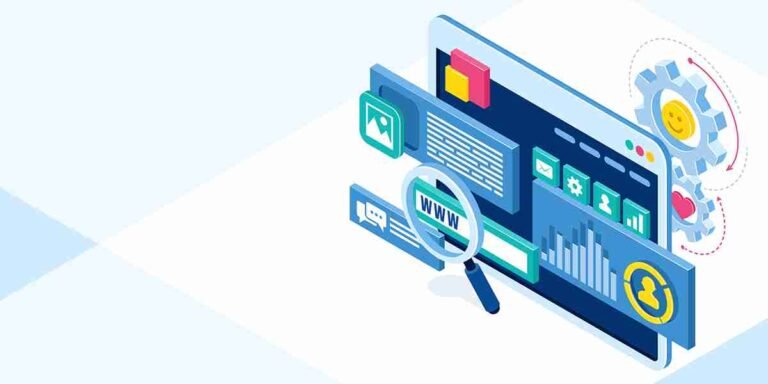Best Practices for Building Scalable Hybrid Mobile Apps

In an era of rapidly evolving technology, scalability has become a key factor in mobile app development. Hybrid mobile apps, which blend the benefits of both native and web applications, offer a robust solution for businesses looking to build scalable applications. At Mountain Techno System, we prioritize scalability in our hybrid app development process, ensuring that businesses can grow without limitations. In this blog, we will explore the best practices for building scalable hybrid mobile apps to support long-term business growth.
As businesses grow, their mobile applications need to grow with them. One of the major advantages of hybrid mobile apps is their ability to scale efficiently across platforms and devices. However, scalability is not something that happens by chance—it must be planned for and implemented from the ground up. At Mountain Techno System, we follow industry-leading best practices to ensure that the hybrid apps we develop can handle increased traffic, new features, and greater user demands over time.
1. Choose the Right Framework
Selecting the right framework is critical when building a scalable hybrid mobile app. Frameworks like React Native, Flutter, and Ionic allow developers to write once and deploy across multiple platforms, making it easier to scale. At Mountain Techno System, we carefully evaluate business requirements to select the framework that offers both scalability and performance.
Key considerations:
Cross-platform compatibility: Ensure the framework supports iOS, Android, and web.
Performance optimization: Choose frameworks that deliver native-like performance.
Community and support: Opt for frameworks with large communities and frequent updates to stay ahead of technological changes.
2. Modular Architecture
A scalable app needs a well-structured, modular architecture. This approach allows different parts of the app to be developed and maintained independently, making it easier to add new features or update existing ones without disrupting the entire system.
Benefits of modular architecture:
Easier updates and maintenance: Individual modules can be modified without affecting the entire app.
Improved scalability: New features or modules can be added as the app grows.
Reusability: Modules can be reused across different parts of the app or even in future projects.
3. Use Efficient Data Management
Scalable apps require efficient data management systems. As the app grows and more users interact with it, managing large datasets becomes crucial. At Mountain Techno System, we implement cloud-based databases and caching solutions to ensure that data retrieval is fast and efficient, even as traffic increases.
Best practices for data management:
Cloud-based databases: Use scalable cloud solutions like Firebase, AWS, or Google Cloud for data storage.
Caching mechanisms: Implement caching strategies to reduce load times and improve performance.
Data compression: Compress data to reduce bandwidth usage and improve app speed.
4. Leverage Cloud Infrastructure
Cloud infrastructure plays a vital role in the scalability of hybrid mobile apps. Cloud services offer on-demand resources, allowing apps to handle traffic spikes and increased demand without performance issues. We at Mountain Techno System make use of cloud platforms like AWS, Google Cloud, and Microsoft Azure to deliver scalable, resilient apps.
Advantages of using cloud infrastructure:
Elasticity: Automatically scale resources up or down based on app usage.
Global reach: Provide a consistent user experience across different regions and devices.
Cost-efficiency: Pay for only the resources used, reducing operational costs for businesses.
5. Optimize Code for Performance
When building a scalable app, performance optimization should be a top priority. Well-optimized code ensures that the app runs smoothly even when handling large user bases. At Mountain Techno System, we follow coding best practices such as minimizing the use of third-party libraries, reducing the number of network calls, and optimizing image loading.
Tips for optimizing code:
Minimize third-party libraries: Only use essential libraries to avoid bloating the app.
Asynchronous processing: Use asynchronous processes to prevent the app from becoming unresponsive.
Reduce network calls: Batch API requests to reduce the number of network calls.
6. Implement Proper Testing
To ensure scalability, it’s essential to test the app under different conditions. At Mountain Techno System, we conduct load testing, stress testing, and performance testing to ensure that our hybrid apps can handle various usage scenarios without compromising performance.
Testing strategies for scalability:
Load testing: Simulate high traffic to test how the app handles user demand.
Stress testing: Test the app under extreme conditions to identify its breaking point.
Performance testing: Measure the app’s responsiveness, speed, and resource usage.
7. Optimize User Experience (UX)
A scalable app must also deliver a consistent and optimized user experience across all platforms. Hybrid mobile apps should be designed with responsiveness and intuitive navigation in mind to handle growth while maintaining user satisfaction.
UX best practices:
Responsive design: Ensure that the app adapts to different screen sizes and devices.
Consistent UI elements: Maintain consistency across iOS, Android, and web versions.
User feedback integration: Continuously gather and integrate user feedback to improve the app experience.
8. Monitor App Performance Regularly
Continuous monitoring is critical for maintaining a scalable app. At Mountain Techno System, we implement real-time monitoring tools to track app performance, user behavior, and error reports. This enables us to identify potential bottlenecks and scalability issues before they impact the user experience.
Key metrics to monitor:
App performance: Track response times, load times, and crash reports.
User activity: Monitor how users interact with the app and identify popular features.
Scalability issues: Identify bottlenecks that could affect future scalability.
9. Ensure Security and Compliance
As apps scale, so do security risks. Ensuring the app is secure and compliant with industry regulations is essential. Mountain Techno System prioritizes security features like data encryption, secure APIs, and compliance with regulations such as GDPR, HIPAA, and CCPA.
Security measures for scalability:
Data encryption: Protect sensitive data during transmission and storage.
Two-factor authentication (2FA): Add an extra layer of security for user accounts.
API security: Ensure all APIs are secure to prevent unauthorized access.
Building scalable hybrid mobile apps requires careful planning and the implementation of best practices from the very start. At Mountain Techno System, we follow these best practices to deliver hybrid apps that can grow with your business. From selecting the right framework to optimizing code and leveraging cloud infrastructure, we ensure that your app can handle increasing demands and provide a seamless user experience.














